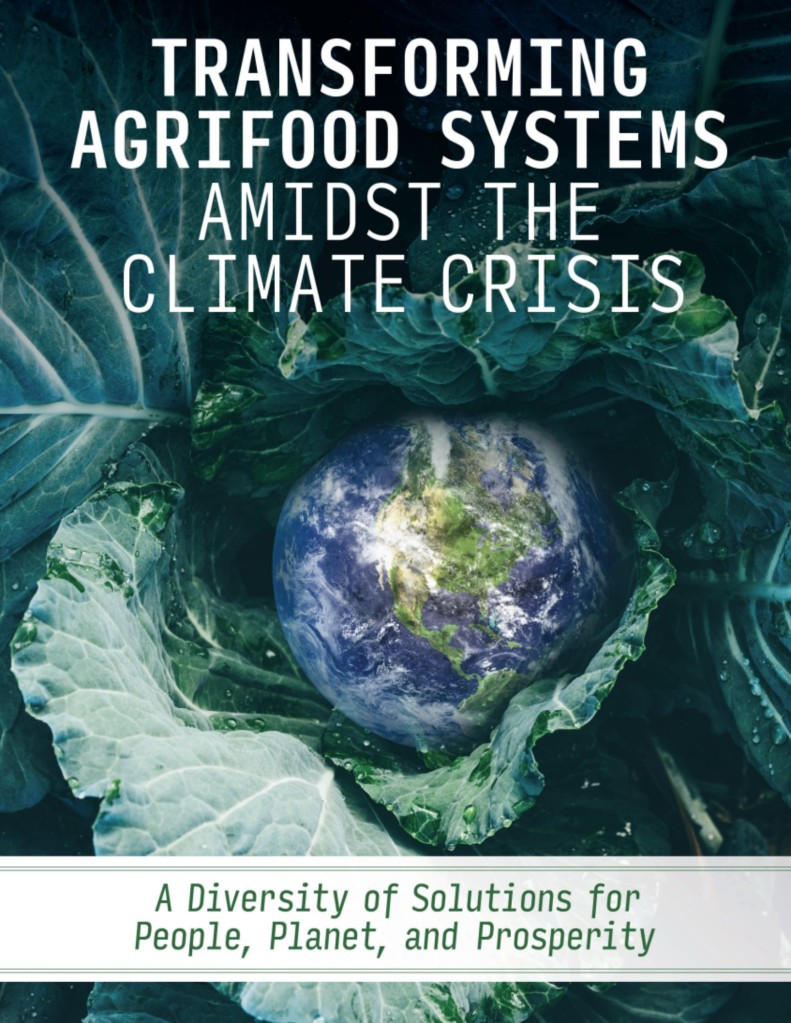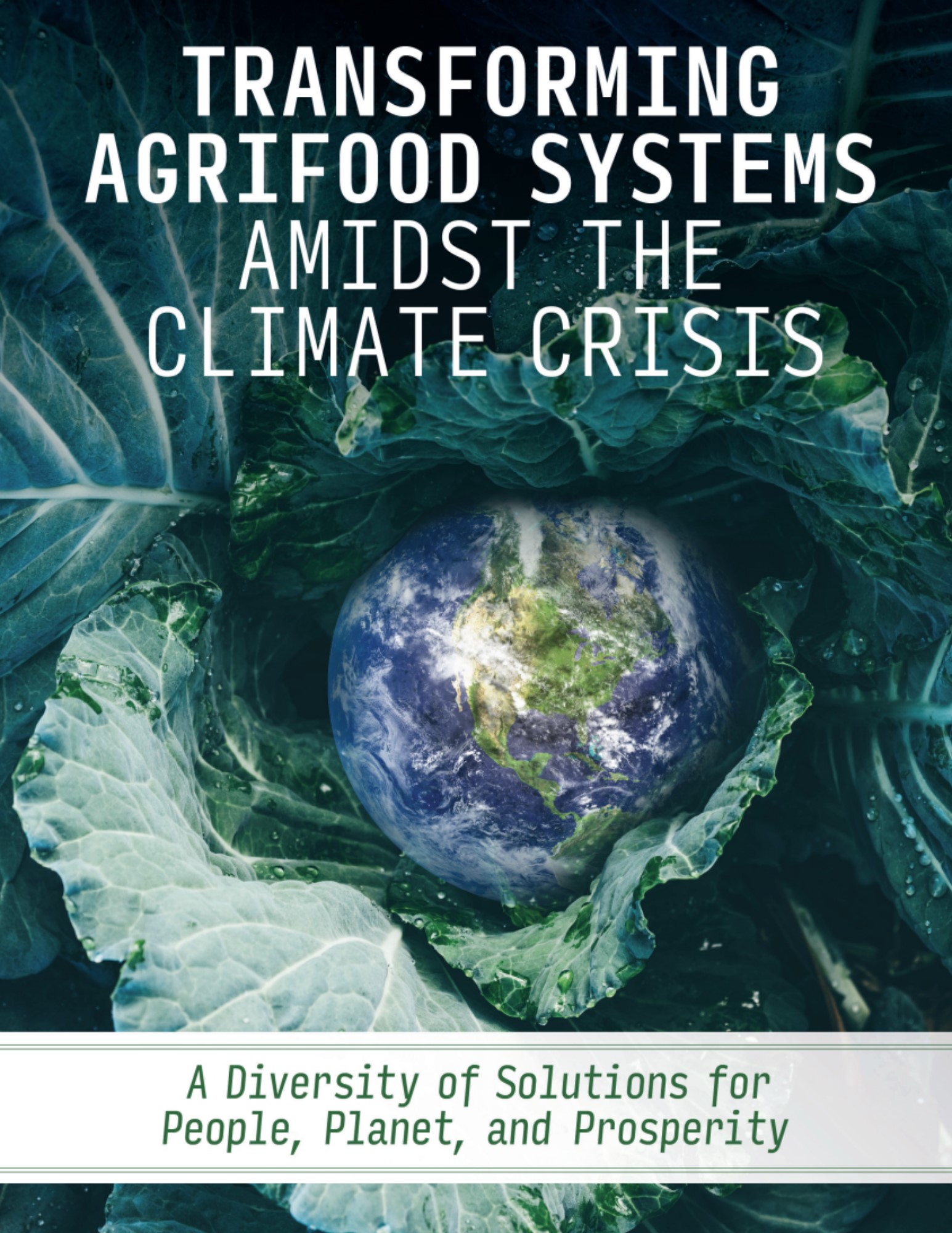GFFN Partner – Food Systems for the Future (FSF), The Food is Medicine Institute at Tufts University, and the Environmental Defense Fund (EDF) launched their joint report “Transforming Agrifood Systems Amidst the Climate Crisis: A Diversity of Solutions for People, Planet, and Prosperity”.
The report aims to inform, enable, and mobilize a broad spectrum of policymakers, private asset managers and owners, and corporate leaders through a journey that leads towards agrifood systems transformation with equitable health, climate, and financial benefits for all. The collaborators acknowledge that solutions to our modern agrifood crises will be found in systems rather than siloed approaches, and champion a diversity of solutions—operating across different geographic and temporal scales in agrifood value chains to drive the systems change required to address the global human health, climate, and poverty crises of today.
“To accelerate agrifood systems transformation, we need to diversify public and private financing mechanisms and build the investment case for commercially-viable solutions. Public, private, and philanthropic capital need to work together to make investments across the value chain that also benefit producers, consumers, and downstream communities as well as the environment- looking beyond the traditional bottom line.”
– Transforming Agrifood Systems Amidst the Climate Crisis: A Diversity of Solutions for People, Planet, and Prosperity Report

Key takeaways from the report:
- Solving the accelerating climate crises of today require bold mitigation of our food systems’ toll on the environment and real time adaptation to the growing challenges climate change is already presenting for food producers’ livelihoods, food security, and nutrition and health for all.
- We will need a diversity of solutions, operating across geographic and temporal scales in the food system value chain to drive the systems change required to address the global human health, climate, and poverty crises today.
- Solutions to our modern food crises will be found in systems rather than siloed approaches, by championing connectivity and circularity across the food system value chain and collaboration between policymakers, private finance, business, and other actors across the food system value chain.
- Science-based, real-time impact measurement and management systems are vital to understand, navigate, and take informed decisions around the complex trade-offs that exist for People, Planet, and Prosperity.
- To accelerate food system transformation we need to diversify financing mechanisms deployed and build the investment case for commercially-viable solutions. In parallel, we must expand investors’ perspectives on returns to include societal returns—notably, to producers (farmers and fishers), consumers and downstream communities, as well as the environment—looking beyond the traditional bottom line.

